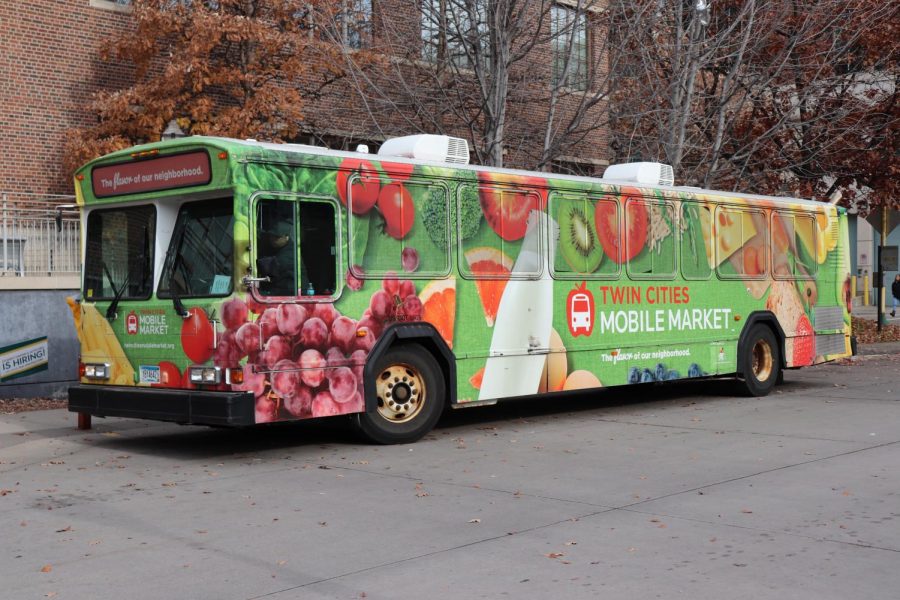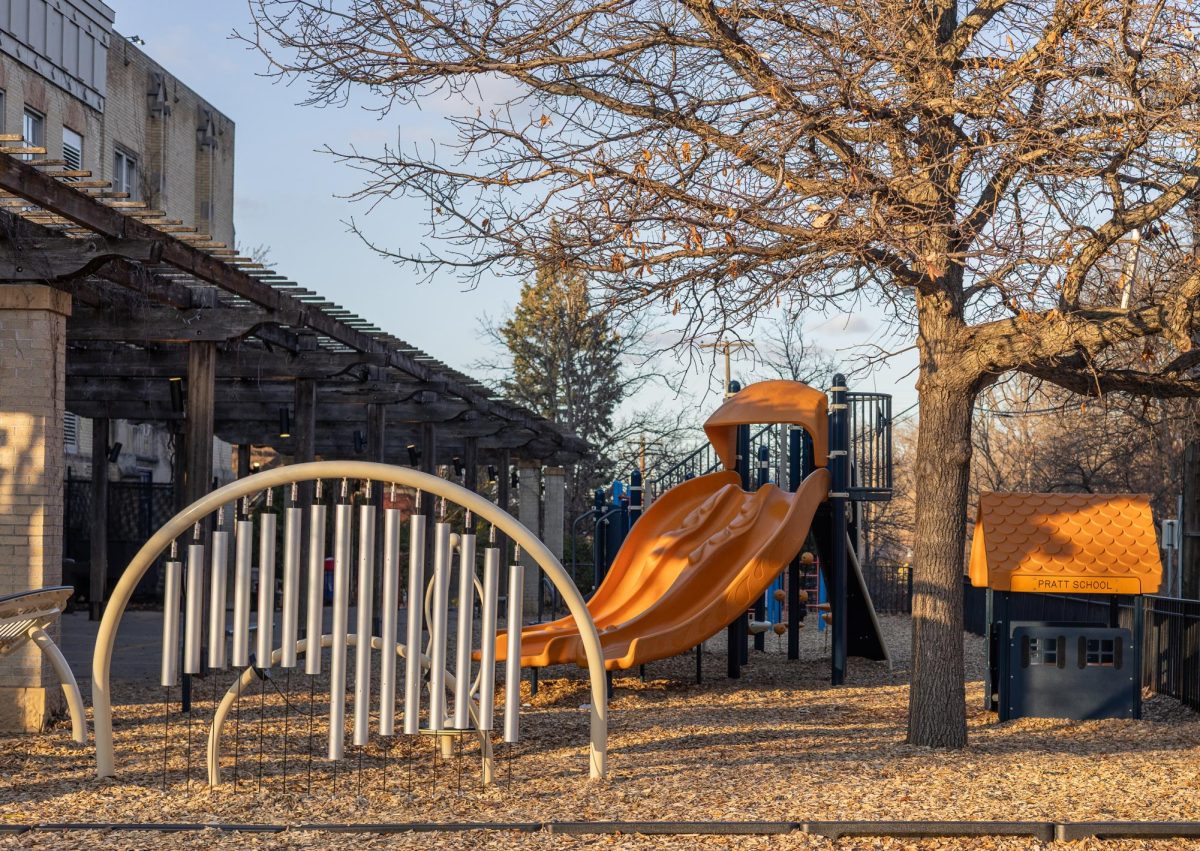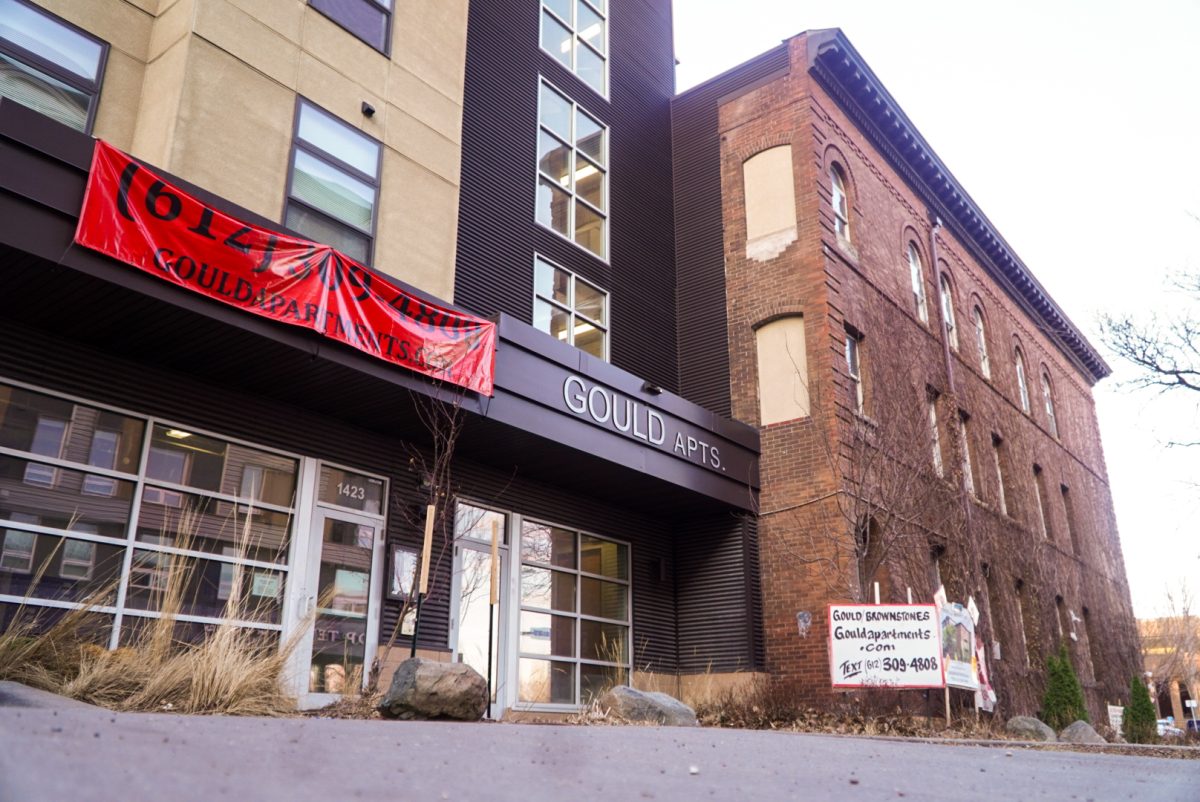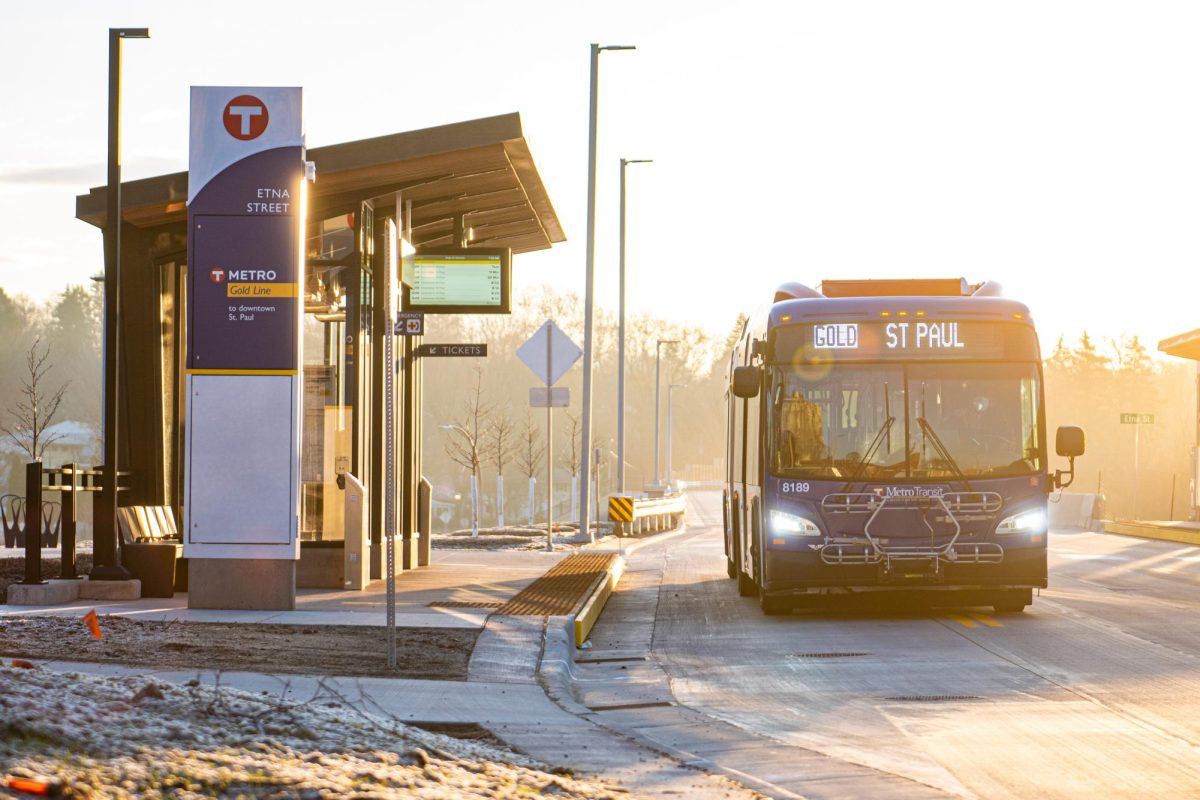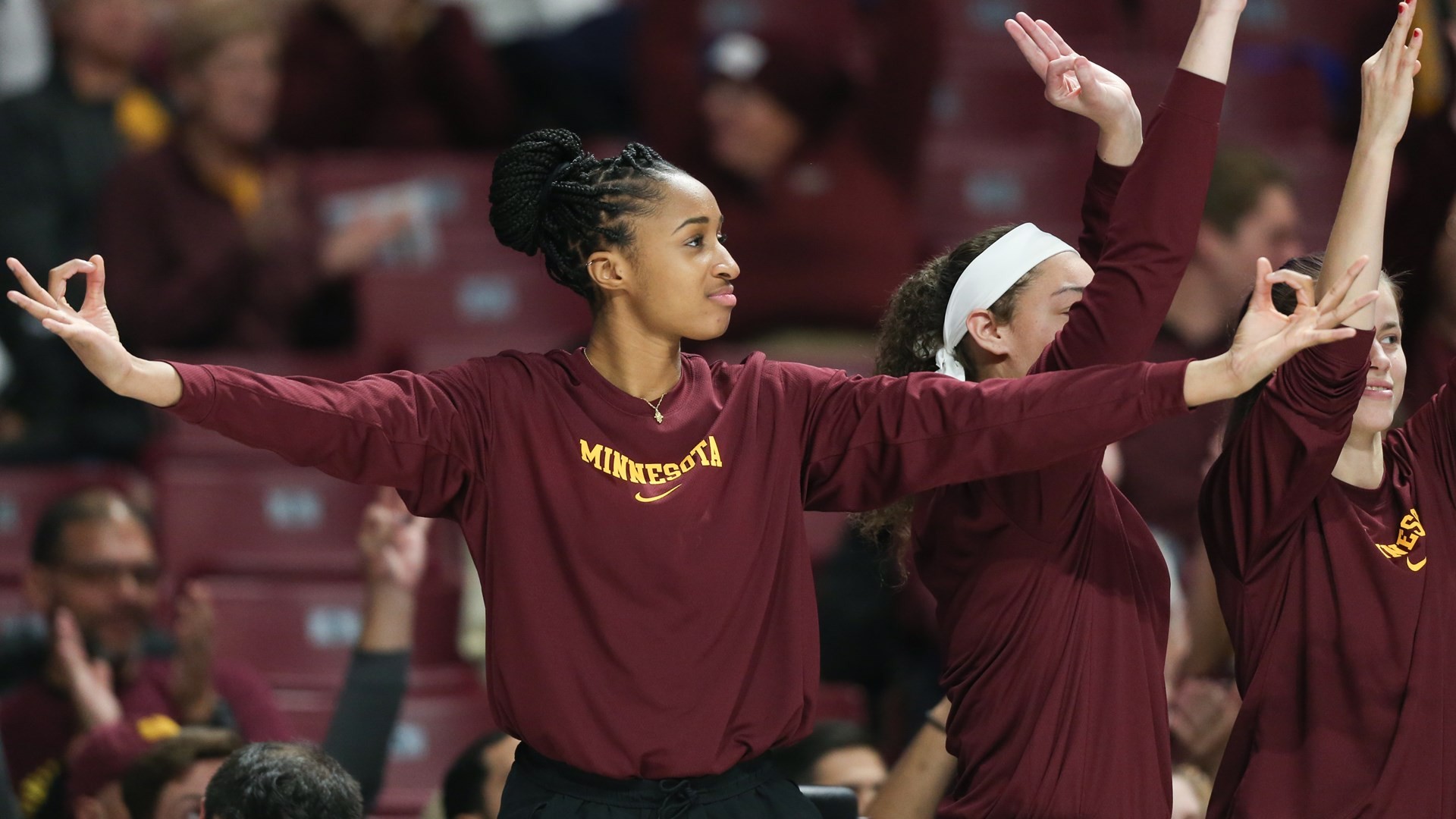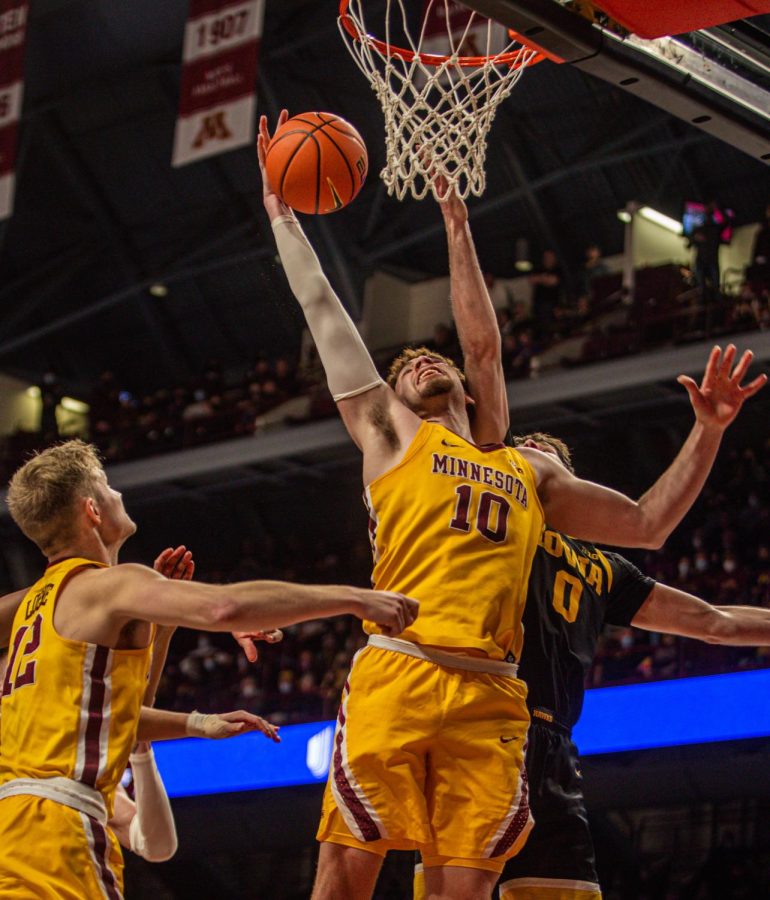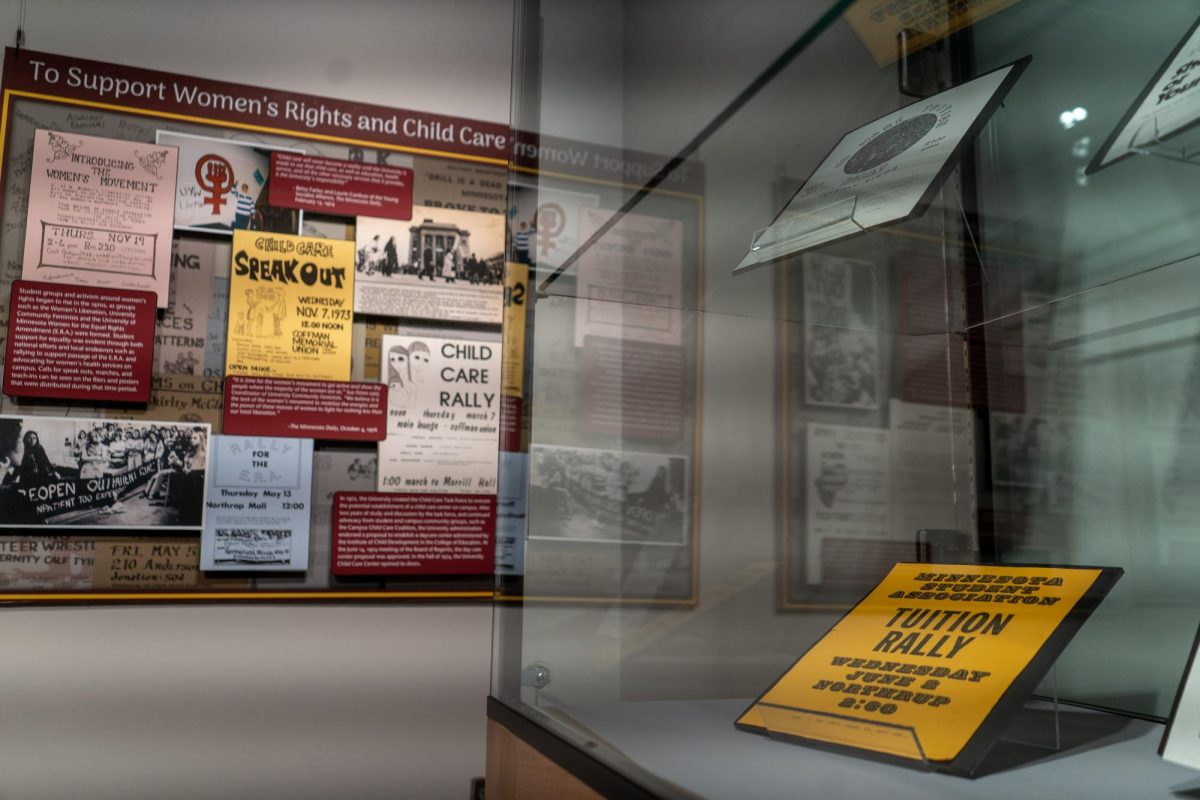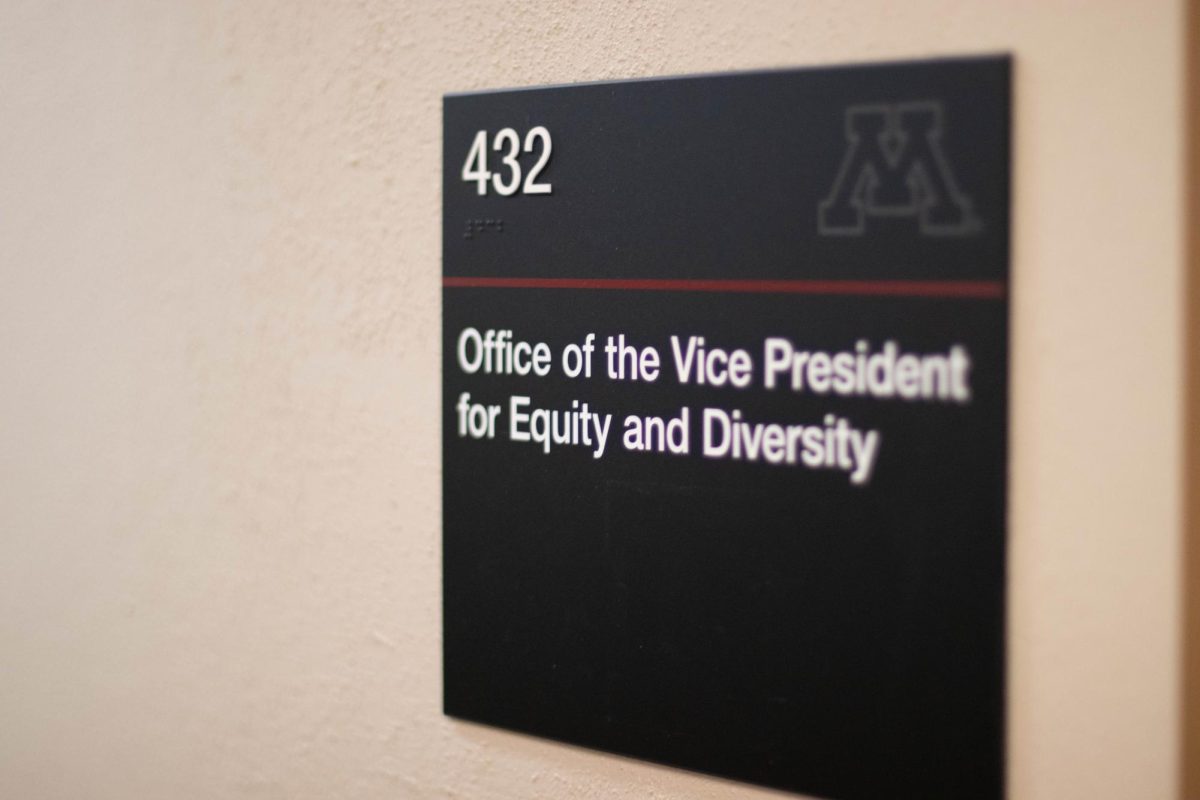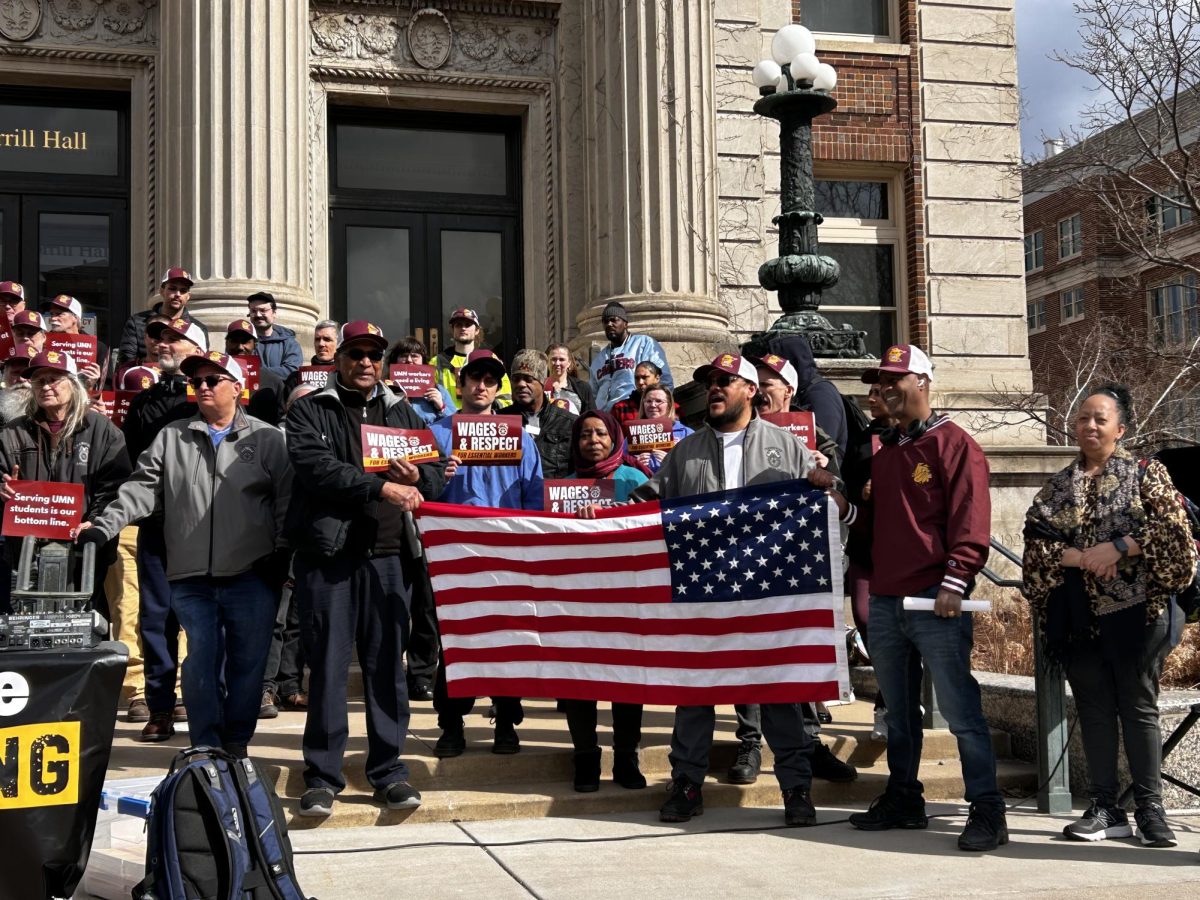From fresh produce to different kinds of meats, the Mobile Market allows for low-cost grocery options for college students.
Last December, the Basic Needs Task Force of the University of Minnesota’s Minnesota Student Association (MSA) established an initiative towards food security on campus. In an effort to achieve this, the taskforce partnered with The Food Group, a local food nonprofit organization based in Minneapolis, to bring affordable food options.
The first test of the Mobile Market was last month. The market is a city bus transformed into a grocery store. There are items like fresh fruits and vegetables, meat products, dairy products and other foods. Students can stop by between classes and get whatever they need, ranging from one banana to three bags filled with groceries.
“The Mobile Market is great because it comes to campus,” said Emma Mentz, third-year student and one of the MSA members in charge of the Mobile Market. “You can find groceries from places like Cub at a discounted rate, so it’s really affordable and brings food right to campus.”
The prices of the Mobile Market are more affordable compared to the Dinkytown Target. For example, a pound of ground beef at the Dinkytown Target is $6.79, whereas at the Mobile Market it is $3.79. A dozen eggs at Dinkytown Target is $1.29, whereas at the Mobile Market it is $0.99, according to the Minnesota Daily’s comparison.
“It’s a good inbetween for students who don’t quite qualify for resources like the Food Pantry,” said Mentz. “[Students] want to pay, but they might not be able to pay the full price, so Mobile Market is a good option.”
Some students said raising awareness for the Mobile Market is a top priority for this initiative, as many do not realize how much of an impact food insecurity has on others. Providing a resource for students who struggle with food insecurity has been crucial for MSA and the University.
“One in five students at the University do face food insecurity at some level, which is thousands and thousands of students,” said third-year student Trey Feuerhelm, another MSA member in charge of the Mobile Market. “Most people aren’t aware of the resources they have or how common it is.”
Mentz said the process of getting the Mobile Market up and running was not easy. She added that the Mobile Market team went through at least twelve different administrative teams in order to get complete approval for this initiative. Mentz also said the University understood that having sustainable food options for students was important.
Administration “wants what’s best for the students. They still want to do good,” Feuerhelm said.
Lisa Sabourin has worked for the retail program for The Food Group for eight years. She is in charge of the Mobile Market at the University and enjoyed seeing the impact the Mobile Market has had on the University so far.
“Students have a lot of expenses and are short on time and money, but we are hopeful that we can uplift some students that might really benefit from getting more with the money they do have,” Sabourin said.
The goal of the Mobile Market is to provide students with the chance to afford food in a sustainable way. Overall, the feedback is overwhelmingly positive from students on campus.
Mentz said multiple students have shown up both times the Mobile Market was on campus. She added that one student even asked her if they were going to be there again the following week.
“We know we’ve made an impact, and that makes it all worth it,” Feuerhelm said.
The Mobile Market will return to campus in February of next year.


